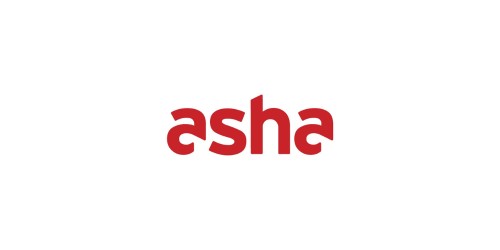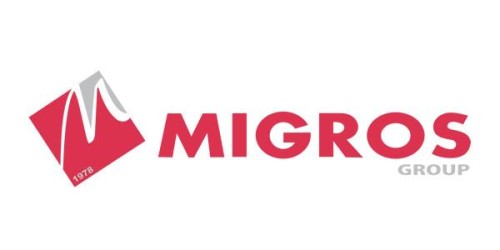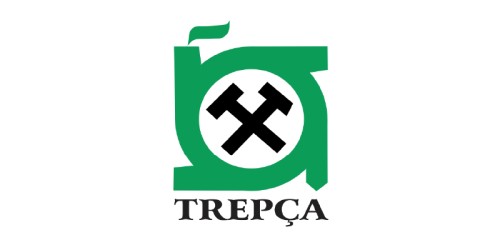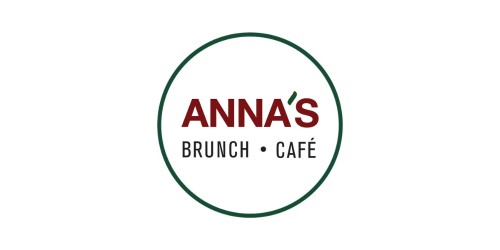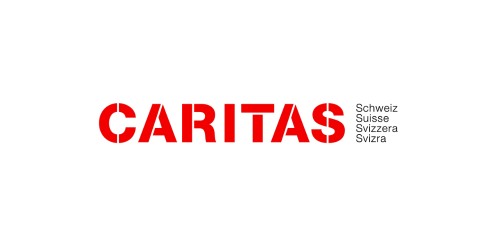
TERMS OF REFERENCE
SIRED Endline Study
in the frame of the project Sustainable and Inclusive Rural Economic Development (SIRED),
implemented by Caritas Switzerland in Kosovo, funded by the Austrian Development Cooperation (ADC)
1. BACKGROUND
In Kosovo, even though agriculture is considered to have great potential for economic development, the agriculture sector is characterized by limited production and organizational capacity, lack of access to technology and updated knowledge, as well as environmental risks. The Sustainable and Inclusive Rural Economic Development (SIRED) project funded by the Austrian Development Cooperation Agency aims to facilitate more sustainable and inclusive market systems and contribute to poverty reduction for rural populations, particularly women and marginalized populations.
The project works to increase the income of producers, processors, and other market actors to enhance access and cross-border trade as well as improve women’s participation, agency, and growth in the selected market systems. The empowerment of women and inclusion of marginalized populations is a cross-cutting theme mainstreamed throughout the project. The project builds on Caritas Switzerland’s (CaCH) sound experience in capacity and organizational development, organic certification, agricultural development, market systems development, and cooperation with smallholder farmers in Kosovo.
The project aims to facilitate more sustainable and inclusive market systems which contribute to poverty reduction of rural populations, particularly women and marginalized groups. The suggested theory of change is to reduce poverty and exclusion in rural areas thanks to more sustainable and inclusive market systems.
The project is implemented by Caritas Switzerland, in cooperation with the Initiative for Agricultural Development of Kosovo (IADK), EcoKosWomen (EKW), Mjedra e Kosovës, Organika, PePeKo, the Research Institute of Organic Agriculture (FiBL), and the Ministry of Agriculture in Kosovo.
2. OBJECTIVE
The key objective of the study is to gather baseline and end-line data to assess the overall change in beneficiary incomes and access to markets which should theoretically have improved due to SIRED’s interventions (capacity building activities, financial support, market linkage, etc). The data collected for the baseline study will be compared to data collected at the end of the line. The final results of the analysis and recommendations will be used to inform ongoing SIRED activities and help shape the future of the project’s strategies and goals.
Some of the key areas that will be explored are:
- Capacity development in agricultural best practices in respective value chains.
- Improvement in income from agriculture.
- Improved working conditions and employment opportunities.
- Access to domestic trade markets.
Baseline Surveying
The purpose of the baseline data surveying is to assess the status of key indicators, have a better understanding of prevailing conditions and perceptions of the program populations in the implementation areas, and serve as a point of comparison for other studies such as the endline study.
Endline Surveying
The purpose of the endline data surveying is to compare SIRED baseline study results with the performance of the beneficiaries at the end of the project’s life. The study results are also meant to inform stakeholders about the effectiveness of project interventions and contribute to future project designs and implementation strategies.
3. METHODOLOGY
The contractor is expected to conduct the baseline survey with around 500 project beneficiaries[1]. These beneficiaries will be selected from the project databases and will also be from the 10 targeted municipalities. The contractor will conduct the endline survey using at least 60% of the total number of the project’s direct beneficiaries[2] from 2021’s baseline survey plus this round’s survey (roughly equal to 1000 beneficiaries). To interview the project beneficiaries, the contractor will use questionnaires co-created by SIRED and the contractor and ultimately approved by SIRED. The contractor will also be responsible for translating the questionnaires into the local languages as needed. The contractor should use online application/software for data collection and data processing.
The steps below guide the overall process of the study:
- Finalize Beneficiary Tables
o Contract will receive the final list of beneficiaries to interview and use the list for planning purposes.
- Develop Questionnaires
o Contractor will develop two questionnaires (baseline and endline questionnaire) in coordination with SIRED.
o Contractor will develop questionnaires that will be in line with the project indicators according to the log frame and intervention result chain/measurement.
o All questionnaires will need to be approved by the project’s Monitoring and Evaluation Coordinator.
- Translate Questionnaires
o Contractor will be responsible for translating all questionnaires into local languages.
o All questionnaires need to be entered in any of the online applications selected by the contractor for data collection and analysis.
- Assemble Team
o Contractor will be responsible for assembling a team that can handle the workload in the established timeframe.
o The contractor will be responsible for training the team on data collection software and analysis.
o All team members must have thorough experience with both qualitative and quantitative data collection techniques as well as demonstrate a confident level of question probing when it comes to qualitative interviews.
o The team lead should have practical experience in the Appreciative Enquiry Approach. The team leader will be responsible for training the team on this approach before data collection starts.
- Collect Data
o Contractor will be responsible for establishing the overall logistics along with timeframes, milestones, goals, and any necessary contingency plans.
o Team lead will be responsible for informing the SIRED team on a weekly basis on beneficiaries interviewed to date, outstanding interviewees, problems and solutions, and any modification requests to timelines.
o Team lead will be responsible for conducting first round of quality assurance on all submitted data and will work with team members to address any gaps in quantitative data as well as ensure qualitative data is as thorough as it can be.
o Team lead will be responsible for producing a draft outline for the final report. This draft will be reviewed by the SIRED Monitoring and Evaluation Coordinator and go through rounds of edits.
- Analyze Data
o The contractor will be responsible for analyzing all data collected for both studies.
o The contractor will be responsible for coding all qualitative data points.
o The team lead will be responsible for consulting SIRED stakeholders during the data analysis process (e.g. experts in agriculture, statisticians etc.).
o The team lead will be responsible for delivering preliminary key takeaways to the SIRED Monitoring and Evaluation Coordinator after the analysis period has been completed.
- Write Report
o The contractor will be responsible for producing a draft version of both studies. The SIRED team will be given a chance to read and provide feedback which will include questions, comments, and suggestions.
o The contractor will be responsible for conducting thorough copy edits on each version of the studies before they are submitted.
o The contractor will be responsible for submitting final versions of the studies both in Word and PDF format.
o The team lead will be the main point of contact on all edits, reviews, and correspondences regarding all versions of the studies.
4. DELIVERABLES
Through this activity the consultant/contractor is expected to achieve the deliverables as stated below:
- Final Workplan with methodology, timeline, roles and responsibilities, and beneficiary tables.
- Final questionnaires with approved translations.
- Bi-weekly correspondences between Team Lead and SIRED Monitoring and Evaluation Coordinator on data collection updates, problems and solutions, and any modification requests to timelines.
- Draft report outline.
- Draft version of the report.
- Final version of the report.
- Final database with data gathered for both baseline and endline surveys. This must include all questionnaires conducted and raw data.
5. TIMELINE
The activity will commence once the contract has been fully executed by both parties and will end by the end of January 2023. For this activity, the level of effort shall be up to 50 days (including surveyors/interviewers) unless negotiated in advance with the SIRED Project Manager and approved by the Caritas Switzerland Country Director.
6. KEY QUALIFICATIONS
The contractor (consultants) or team, are expected to have the following skills and key qualifications:
- Bachelor’s/Master’s degree in statistics (leader of the assignment), sociology, economics, rural development or any other relevant university degree related to the study.
- At least 5 years of professional experience in the field of international development, agriculture, and/or economic development.
- Significant experience with Appreciative Enquiry Approach and qualitative data analysis.
- Sector level experience in the fields of rural, market systems, and agricultural development.
- A comprehensive mix of communication and writing skills in English, Albanian, and Serbian which will be required for interviews, data analysis, and report writing.
- Professional presentation and social skills.
7. PROPOSAL SUBMISSION PROCESS
Interested consultants/companies are requested to submit an electronic copy of their proposal by the 19th of September, 2022 with the subject line: REF: “Baseline and Endline Survey Proposal” to Ms. Behare Mlinaku, Monitoring and Evaluation Coordinator – [email protected] with [email protected] and [email protected] in the CC line.
Applicants must submit:
- CVs of all individuals included in the consultancy team. Please note to have all CVs formatted in a uniform fashion.
- Proposal narrative which includes the consultants’/companies’ suitability for the assignment, previous work experience, qualifications, and sector expertise. Please include any past relevant work that might demonstrate knowledge of sector or proposed methodologies (maximum 2).
- Draft workplan which includes dates, milestones, team members assigned, and any other details to demonstrate an adequate level of resourcing within the proposed timeframe.
- Comprehensive methodology to be used for the assignment.
- Financial budget broken down by deliverables and individual daily fees. Please note transport costs need to be included in the budget offer.
The proposal will be evaluated by using the Best Value for Money Approach (combined scoring method). The technical proposal will be evaluated with 80% weight, whereas the financial section will be evaluated at the remaining 20%. Offers that do not include all submission requirements will not be evaluated and considered ineligible.
[1] 500 baseline interviews were already conducted in the previous year (2021).
[2] More than 1000 project direct beneficiaries who are mostly farmers and/or producers/processors.

